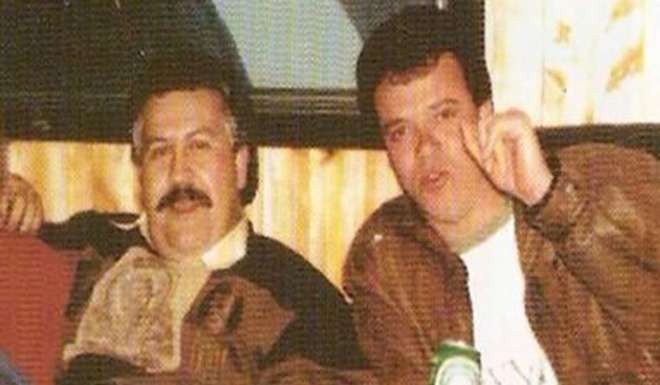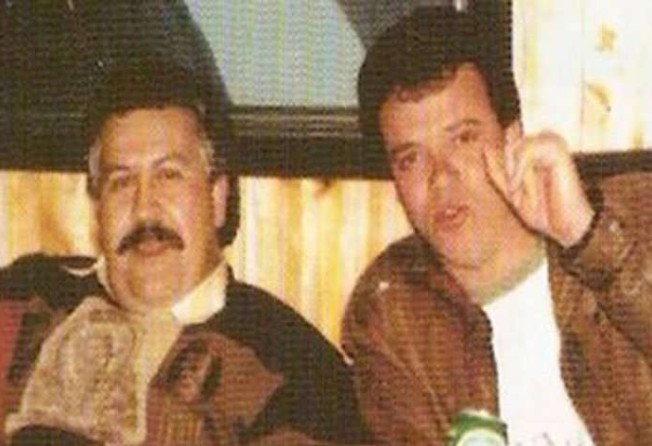
He murdered 300 people. Now Popeye the ‘narco’ assassin is a Colombian media star

Jhon Jairo Velasquez admits he’s killed about 300 people and helped murder at least 3,000 more. When you’re a hit man for Pablo Escobar and the infamous Medellin drug cartel, that’s your job.
Now free after 23 years in prison, Velasquez has a new job: sharing his blood-soaked story in books, on television and in movies. And next year, Netflix is scheduled to begin broadcasting a 60-part Spanish-language series based on his life.
Since his release two years ago, Velasquez, who’s better known by his gangland alias “Popeye,” has been busy. His YouTube Channel “Popeye Arrepentido” or, “Remorseful Popeye,” has racked up more than 15 million views. He has two best-selling books and says he’s pitching three projects to Hollywood.

Speaking from his home in Medellin, Velasquez, 54, said he doesn’t understand the dilemma.
“Do you prefer a Popeye who is living off his story, working from 6am to midnight?” he asked. “Or do you want a Popeye with a gun, trafficking cocaine, kidnapping the rich, setting off car bombs and fighting the police?”
He isn’t surprised by his newfound fame. “People aren’t supporting me because I’m an assassin. They’re supporting me because I’ve been rehabilitated.”
Even so, he recognises that he’s a controversial character. Colombia’s Caracol Television is making the series based on his book “Surviving Pablo Escobar — Popeye the Assassin,” which will be broadcast on Netflix. The company refused to deal directly with him, he said, but instead worked through his publisher.
“They didn’t want to contaminate themselves,” said Velasquez, who wouldn’t discuss the finances of the deal. “They didn’t want to have to say that they bought the book from an assassin.”
This won’t be the first time that Velasquez has seen himself on the small screen. In 2012, Caracol produced the blockbuster series “El Patron del Mal” or “Boss of Evil” about the life of Pablo Escobar. In that show, a character named Marino was loosely based on Velasquez. And portions of his life are scattered throughout Netflix’s current series “Narcos.”
But this is the first time he’ll be the centerpiece of a show, and under his own name. And that’s troubling to some in a country that for years was known for its violent drug trade.
On November 27, 1989, the Medellin Cartel put a bomb on an Avianca passenger plane flying from Bogota to Cali hoping to kill presidential candidate Cesar Gaviria. He wasn’t on the flight but 107 other people were.
Gonzalo Rojas was just 10 when his father and all the other passengers died on that flight, and he resents the surge in narconovelas.
“The only thing these series have done is re-victimise the people who lived through violence,” he says. Most series tweak history for dramatic effect and whitewash the villains, he complained.
“They’ve turned Pablo Escobar into a historical figure,” he said. “Everyone is left with the impression of how powerful and rich he was, of all the women that he had. These shows distort people’s recollections.”
While some places have laws to keep criminals from profiting on publicity for their crime, that’s not the case in Colombia.
For Velasquez, social media has been an outlet and a saving grace.
White haired and fast-talking, the former hit man describes himself as “ultra right-wing” and uses his YouTube channel to savage Venezuela’s FARC rebels, socialists and anything else that has a whiff of the left. (But he said he supported Hillary Clinton because Donald Trump “is a pig who denigrates Latinos and will lead the world to war.”)
But he’s also come to depend on social media as a tool to promote his projects and generate income. Since he emerged from prison, he says most doors are shut. He can’t get health insurance or even open a bank account. He tried working with a Medellin human rights commission and providing tours of the city’s seedier side but was shut down by the mayor’s office, he said.
Even so, he’s hoping his foes in the FARC might inadvertently open doors for him. In their peace negotiations, they’re pressing to be allowed to participate in politics despite their crimes. Velasquez said that if they can run for office, he should be allowed to as well.
If Velasquez has become a local media sensation, he’s also taking risks by being such a public figure in a country that’s crawling with former victims and potential enemies. He complains that he’s not allowed to own a gun or have an armoured car.
“The reason I feel safe is because I’m not scared of dying,” he said. “To be above ground or below ground, it’s all the same. I’m with God, the Holy Spirit, the virgin, my guardian angel and Jesus.”‘